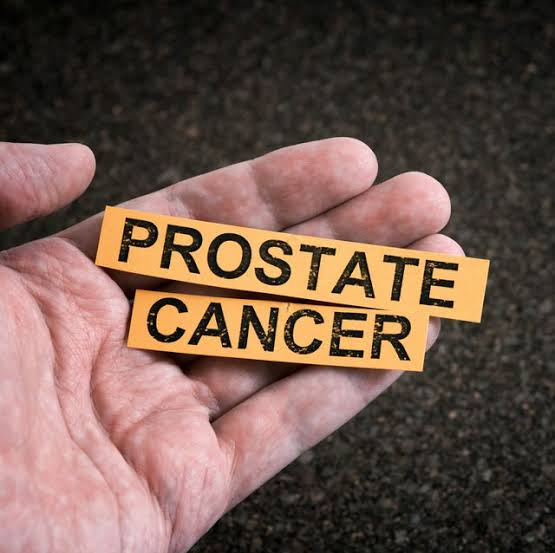
Prostate cancer: causes, symptoms and important information
A typical type of cancer that affects the prostate gland—a tiny, walnut-shaped gland that secretes seminal fluid—is prostate cancer. It can produce a variety of symptoms and typically affects males over 50. This summary covers the symptoms, risk factors, and prostate cancer prevention.
Overview About Prostate Cancer
The prostate gland, situated in front of the rectum and just below the bladder, develops aberrant cells, leading to prostate cancer. After skin cancer, it is the second most prevalent type of cancer in men. Prostate cancer frequently progresses slowly and may go years without showing any signs. But occasionally, it can spread quickly and grow in other body areas.
Symptoms
Early prostate cancer may not cause any symptoms, but as the tumour grows, it can cause the following:
- Trouble Urinating
To various people, difficulty urinating might indicate different things, but in the context of prostate cancer, it typically refers to the symptoms listed below:
If you experience any of the following symptoms, especially at night, you may need to urinate more frequently:
- Difficulty commencing urination
- Weak or inconsistent urine flow
- Painful or burning urination
- Blood in the urine or semen
- Painful ejaculation
You should seek medical attention immediately if you experience any of these symptoms since they could indicate prostate cancer or another problem connected to the prostate.
- Decreased Force in the Stream of Urine
This occurs when the urethra, the tube that conducts urine from the bladder out of the body, comes into contact with the growing malignant cells in the prostate gland. As a result, the urine flow becomes less intense, and additional urinary symptoms like:
- Difficulty starting urination
- Needing to urinate more frequently, especially at night
- Pain or burning during urination
- Blood in the urine
- Inability to empty the bladder
- Blood in the Urine
Hematuria, or having blood in the urine, is a sign of prostate cancer. This symptom appears when the prostate gland’s malignant cells infect nearby tissue, such as the bladder and urethra. The blood vessels may burst due to this invasion, resulting in blood in the urine.
It is crucial to remember that other illnesses like a urinary tract infection or kidney stones can also result in blood in the urine. However, you must visit a doctor for a diagnosis if you experience blood in the urine.
- Blood in the Semen
Hematospermia, often known as blood in the semen, is a typical sign of prostate cancer. It is crucial to remember that not all instances of blood in the semen are brought on by prostate cancer. Infections, inflammation, and injuries are some additional potential reasons why there is blood in the semen.
You should seek medical help immediately if you notice blood in the semen. To identify the underlying cause of your symptoms, your doctor may conduct a physical examination, blood tests, urine tests, and biopsies. Your doctor can advise more testing, such as an MRI or CT scan if they suspect you may have prostate cancer.
- Losing Weight Without Reason
Although weight loss without cause is not a sign of early-stage prostate cancer, it can be a sign of advanced prostate cancer that has spread to the bones or lymph nodes. This is because, even when a person is eating correctly, the presence of cancer cells can lead to weight loss. As a result, you should immediately consult a doctor if you are losing weight suddenly and experience additional prostate cancer symptoms like bone pain or problems urinating.
- Impaired erection
The inability to obtain or sustain an erection firm enough for sexual activity is known as erectile dysfunction (ED). While stress, anxiety, and low testosterone levels are just a few causes of ED, it can also be a sign of prostate cancer.
By disrupting the nerves and blood arteries involved in the erection process, prostate cancer can lead to ED. In rare circumstances, addressing prostate cancer may also aid in easing ED signs and symptoms.
It is significant to remember that illnesses other than prostate cancer might cause these symptoms. You should see a doctor for an accurate diagnosis if you encounter any of these symptoms.
What Are Risk Factors:
Risk factors are traits or actions that raise the possibility of contracting a particular illness or condition. The environment, genes, or way of life may influence these elements. The likelihood of acquiring prostate cancer is increased by several risk factors, even though the precise etiology of the disease is unknown.
- Age: After age 50, the risk of prostate cancer rises sharply.
- Erectile dysfunction: Prostate cancer risk may be higher in men with trouble getting or keeping an erection.
- Obesity: Obesity has been associated with an increased risk of aggressive prostate cancer.
- Genetics: Prostate cancer is more likely to affect men with a history of the disease in their families.
- Metastasis: Treatment for prostate cancer metastasising to other organs is more challenging.
- Incontinence: Men with urine incontinence may be more likely to get prostate cancer.
A common misconception is that growth hormone, which has been used successfully for hormone therapy, causes prostate cancer. However, there is no scientific proof to back up this assertion. Individuals must discuss their HGH and prostate cancer concerns with their healthcare providers.
Prevention
Prostate cancer cannot be avoided entirely, but men may do several things to lower their risk of getting the disease.
- Diet: Consuming a diet rich in fresh produce, whole grains, and legumes while avoiding red meat and saturated fats may lower the risk of prostate cancer.
- Alcohol and Smoking: Limiting alcohol and quitting smoking may lower prostate cancer risk.
- Continue to engage in sexual activity: Men who engage in sexual activity may have a reduced risk of prostate cancer.
- Maintain a Healthy Weight: Eating right and regularly exercising can lower your risk of developing prostate cancer.
Prostate cancer is common in men but can often be successfully treated if caught early. It is essential for men to be aware of the symptoms of prostate cancer and to see a doctor if they experience any of them. Additionally, men can take steps to reduce their risk of developing the disease through lifestyle changes such as diet, exercise, and quitting smoking.







